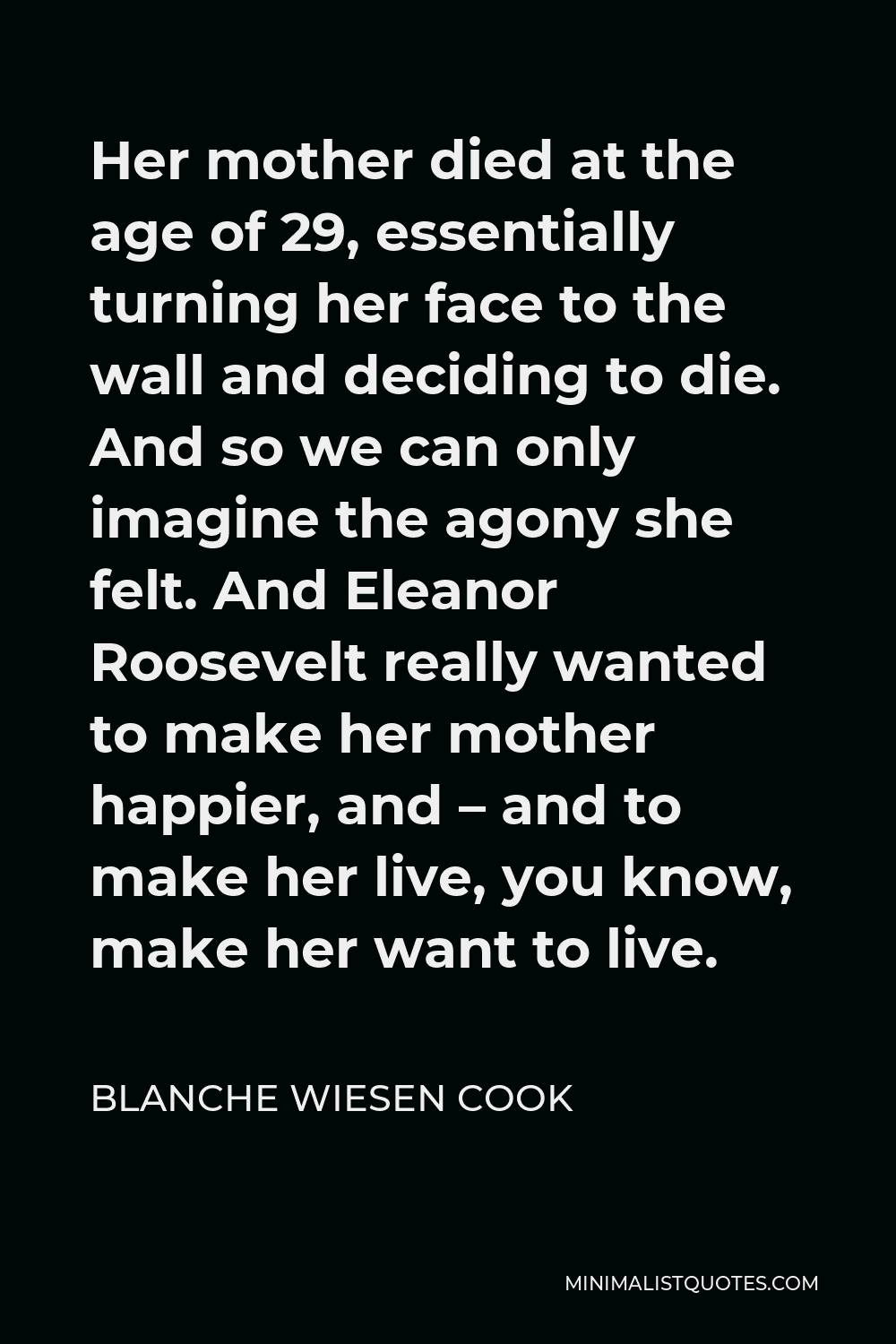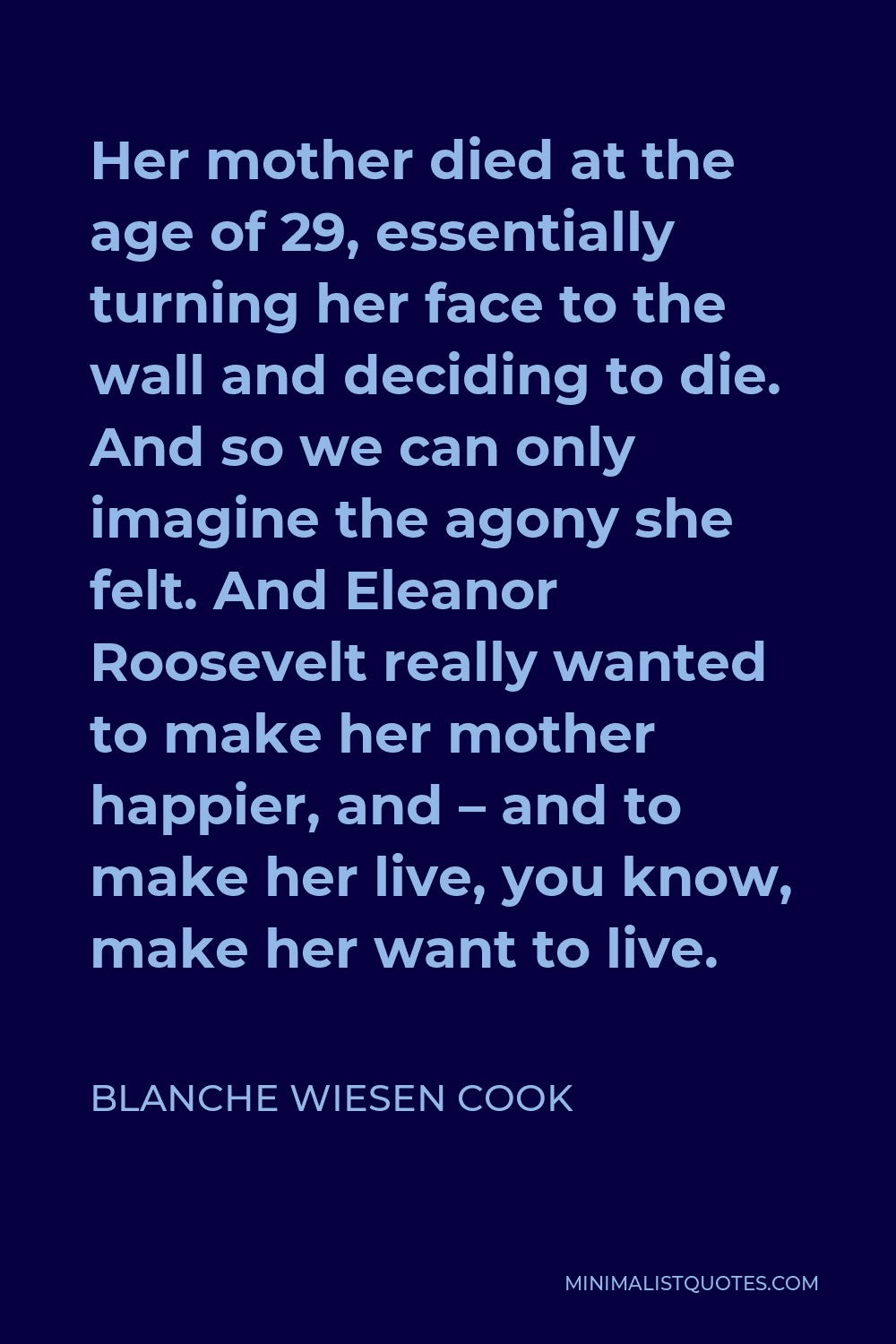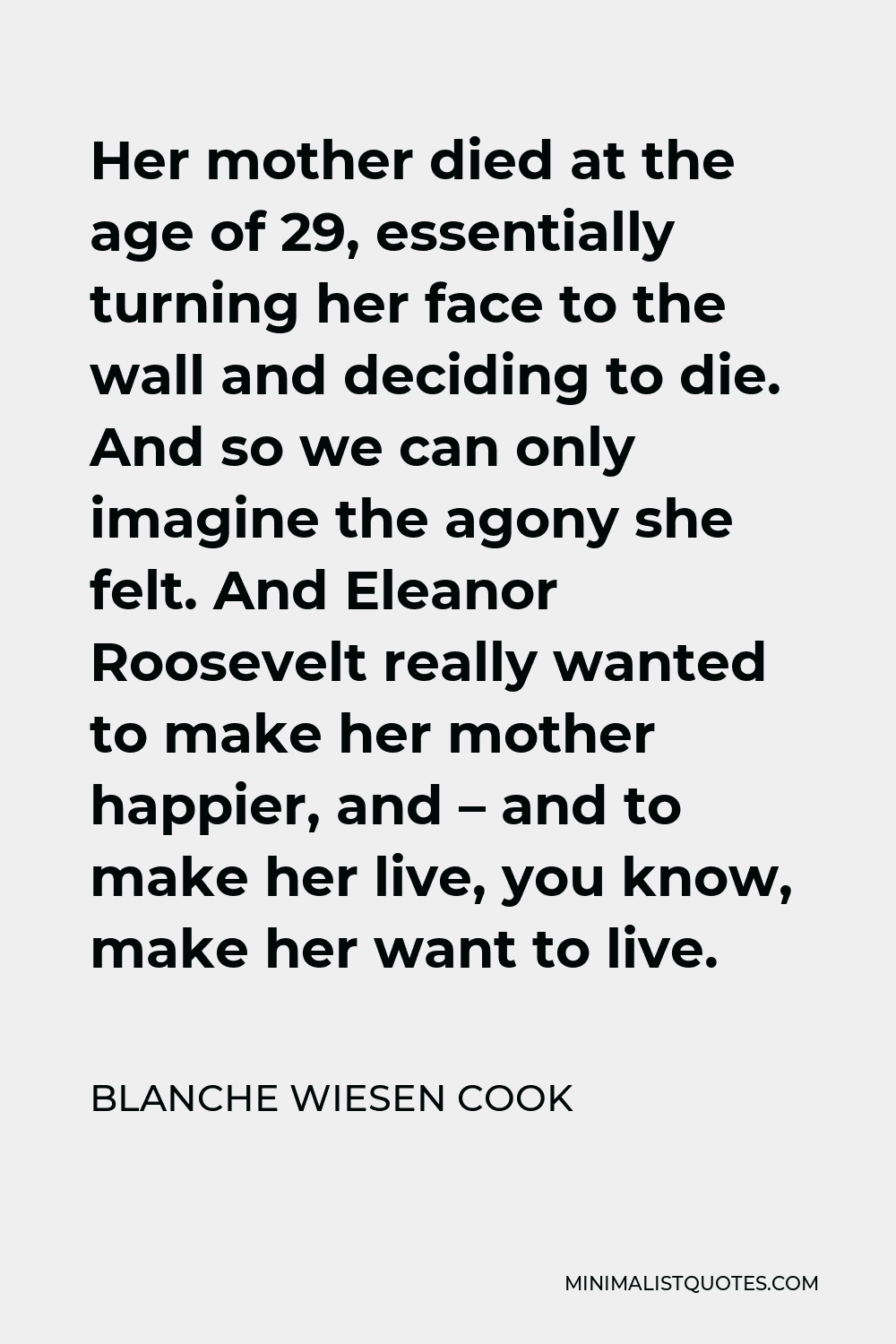She meets Esther Lape and Elizabeth Read, and becomes very involved in the women’s movement, and then in the peace movement. And ironically, the years of her greatest despair become also the years of her great liberation.
BLANCHE WIESEN COOKHer mother died at the age of 29, essentially turning her face to the wall and deciding to die. And so we can only imagine the agony she felt. And Eleanor Roosevelt really wanted to make her mother happier, and – and to make her live, you know, make her want to live.
More Blanche Wiesen Cook Quotes
-





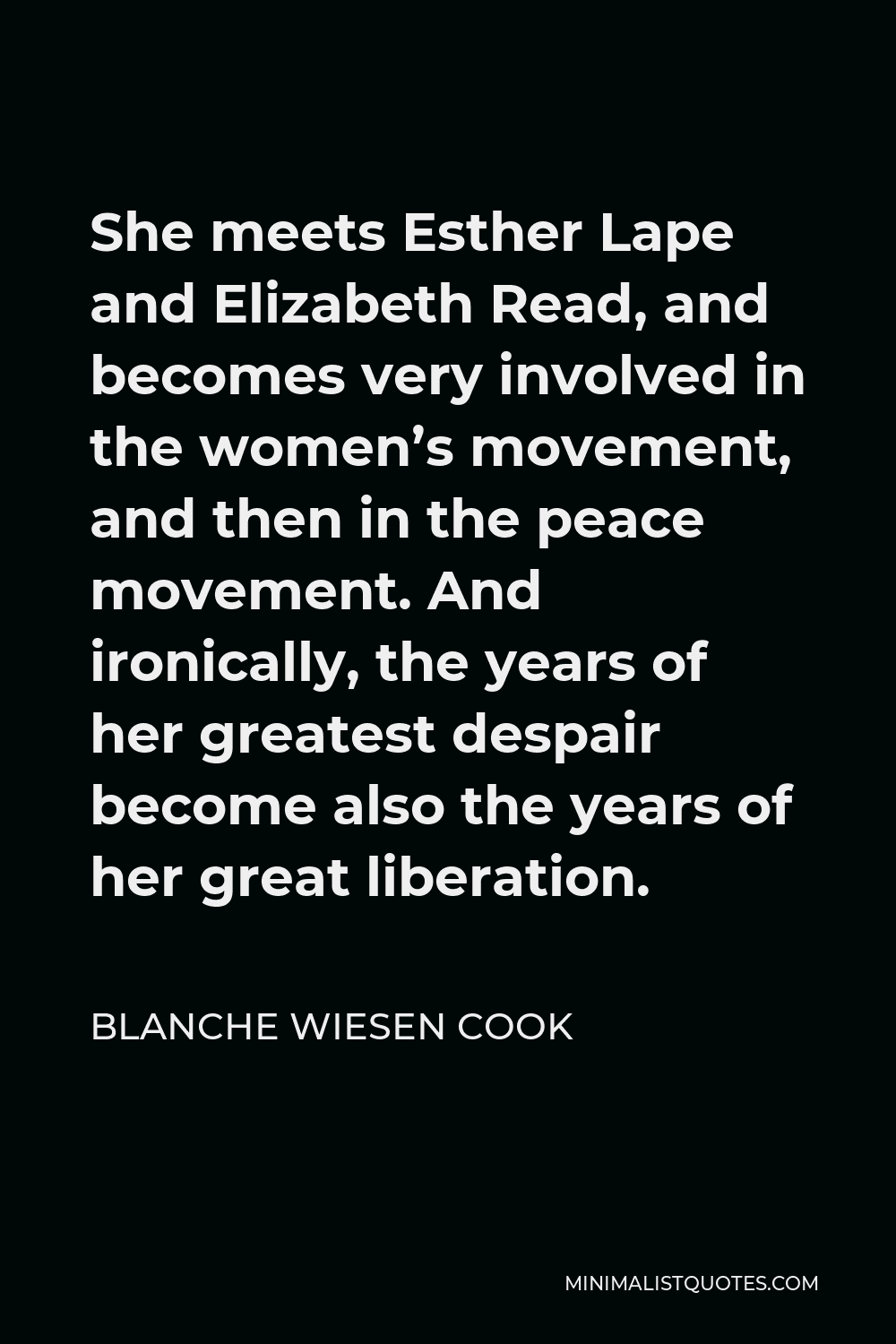
-





![Blanche Wiesen Cook Quote - And in her [Eleanor Roosevelt] letters, she writes the most, you know, fanciful letters: when we are together, and when we are reunited, and you know,](https://minimalistquotes.com/images/and-in-her-eleanor-roosevelt-letters-she-writes-th.jpg)
And in her [Eleanor Roosevelt] letters, she writes the most, you know, fanciful letters: when we are together, and when we are reunited, and you know,
BLANCHE WIESEN COOK -





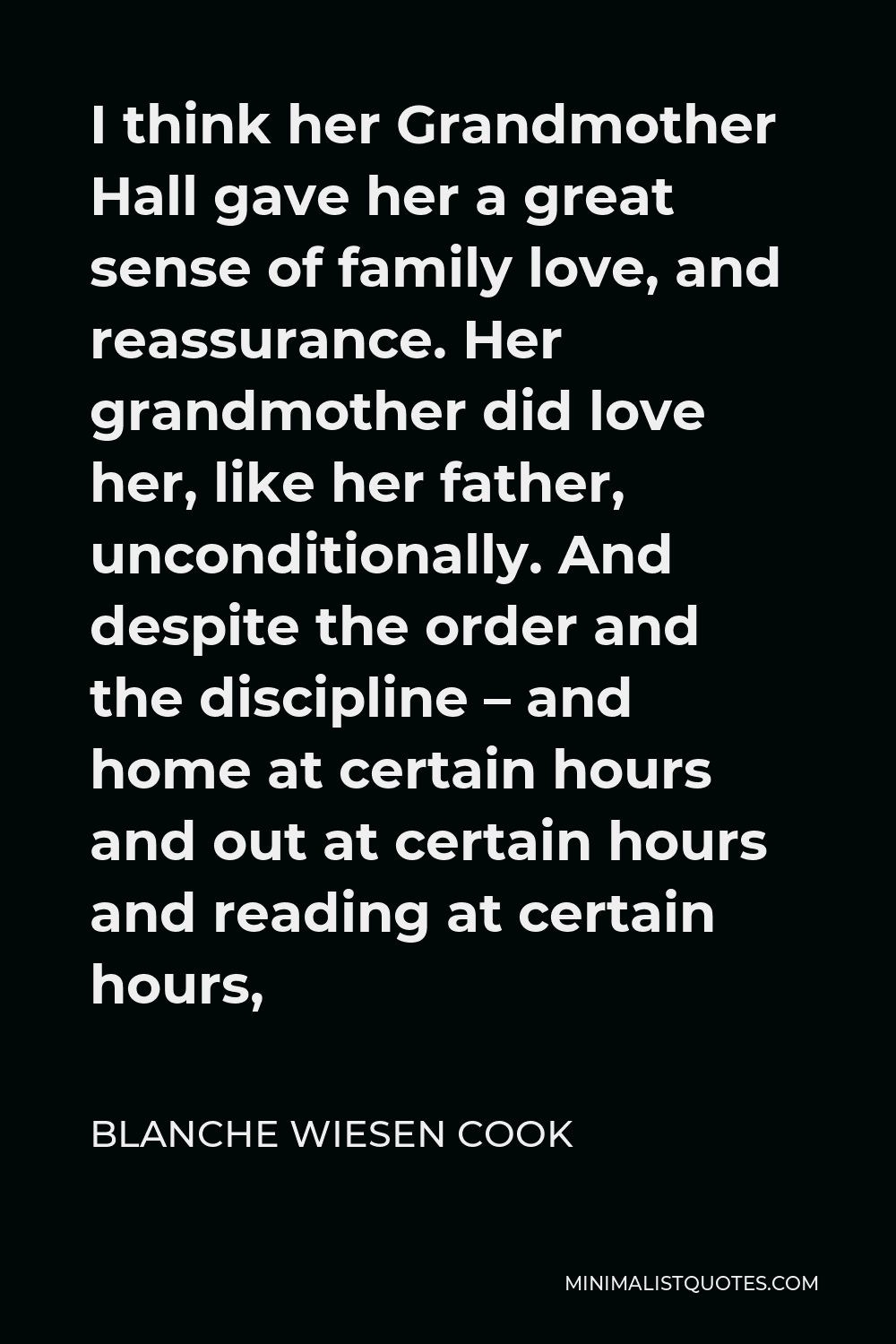
I think her Grandmother Hall gave her a great sense of family love, and reassurance. Her grandmother did love her, like her father, unconditionally. And despite the order and the discipline – and home at certain hours and out at certain hours and reading at certain hours,
BLANCHE WIESEN COOK -





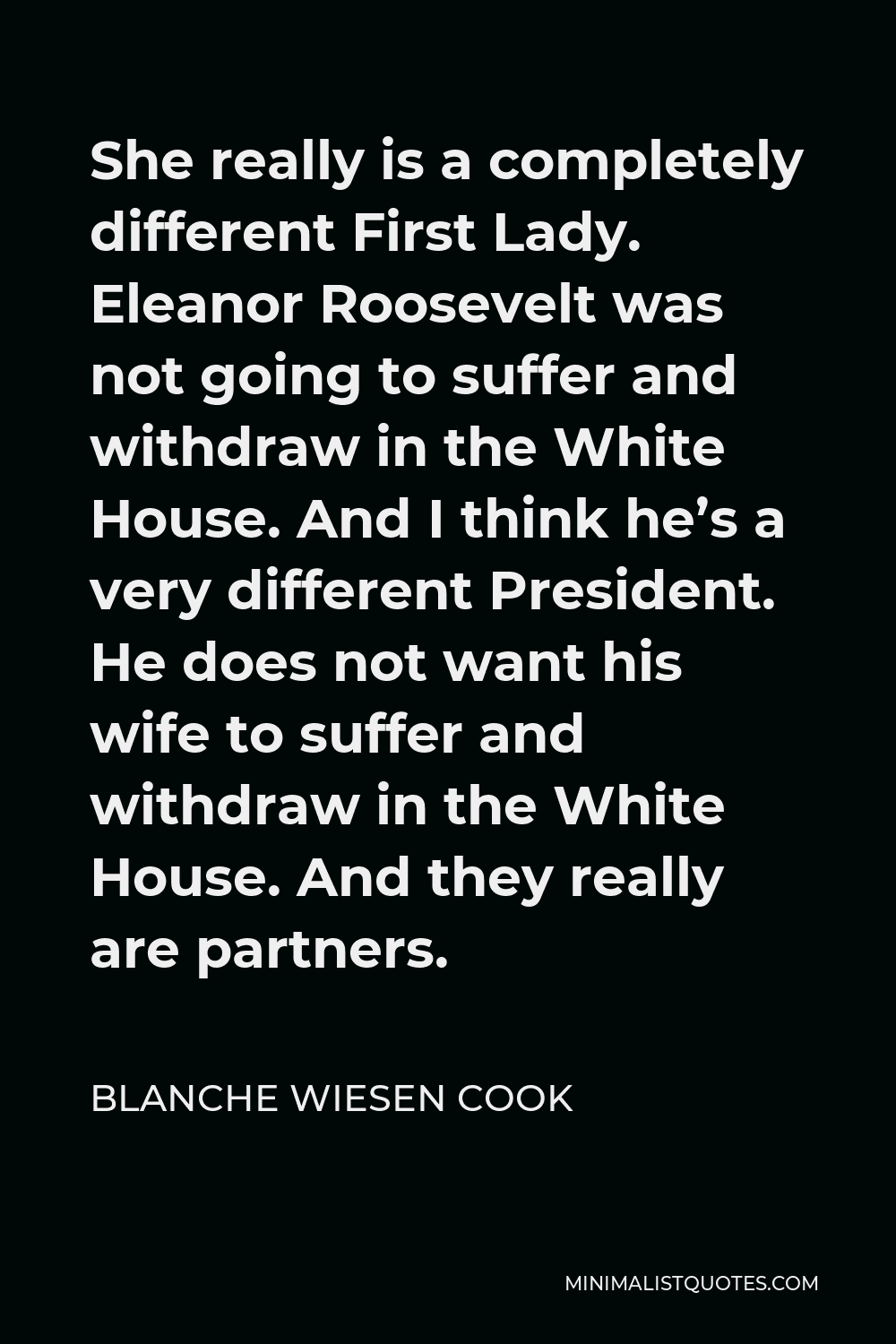
She really is a completely different First Lady. Eleanor Roosevelt was not going to suffer and withdraw in the White House. And I think he’s a very different President. He does not want his wife to suffer and withdraw in the White House. And they really are partners.
BLANCHE WIESEN COOK -





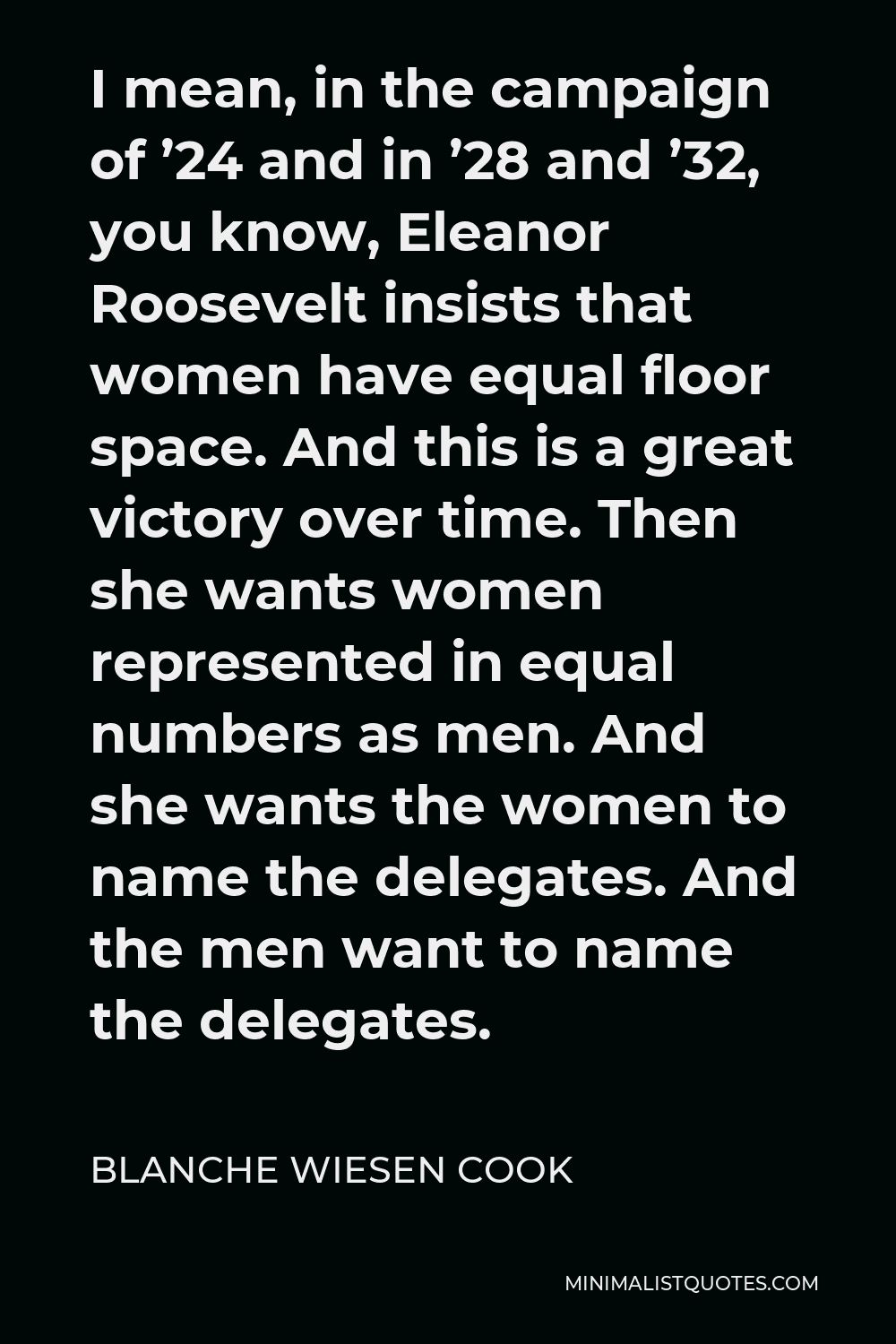
I mean, in the campaign of ’24 and in ’28 and ’32, you know, Eleanor Roosevelt insists that women have equal floor space. And this is a great victory over time. Then she wants women represented in equal numbers as men. And she wants the women to name the delegates. And the men want to name the delegates.
BLANCHE WIESEN COOK -





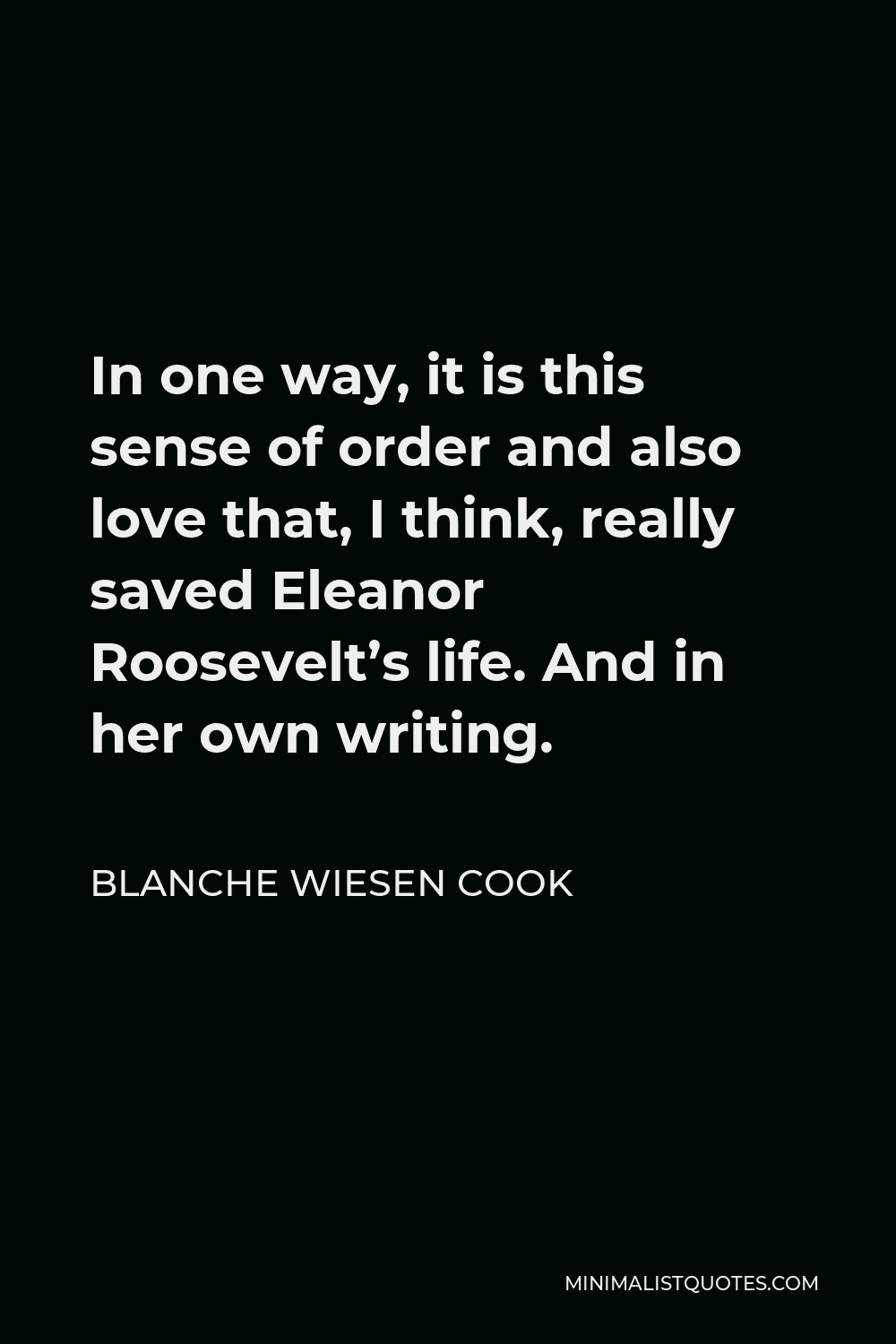
In one way, it is this sense of order and also love that, I think, really saved Eleanor Roosevelt’s life. And in her own writing.
BLANCHE WIESEN COOK -





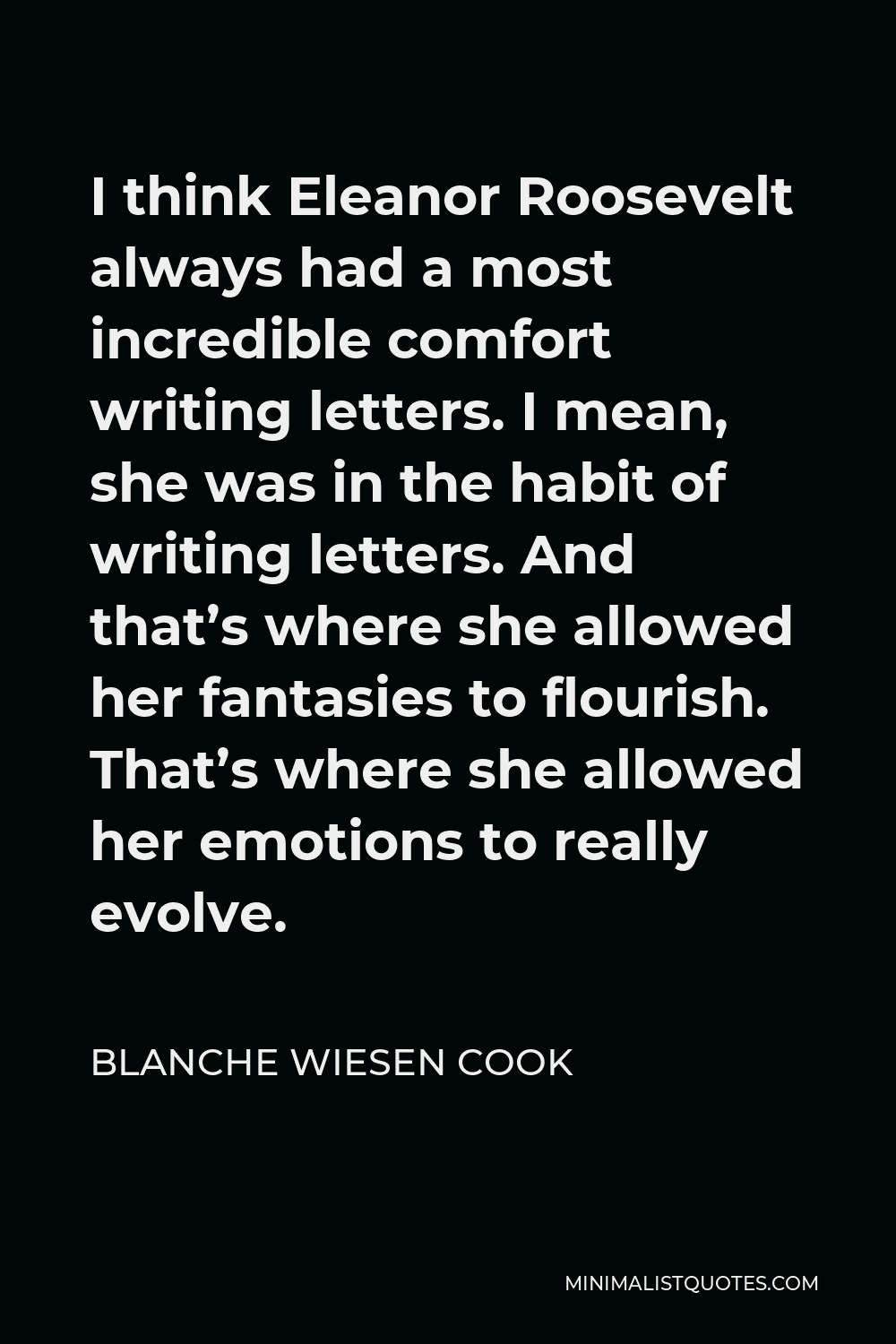
I think Eleanor Roosevelt always had a most incredible comfort writing letters. I mean, she was in the habit of writing letters. And that’s where she allowed her fantasies to flourish. That’s where she allowed her emotions to really evolve.
BLANCHE WIESEN COOK -






We need something like the League of Nations. We need to work together to fight fascism. We need embargoes against aggressor nations, and we need to name aggressor nations. All of which is a direct contradiction of FDR’s policies.
BLANCHE WIESEN COOK -





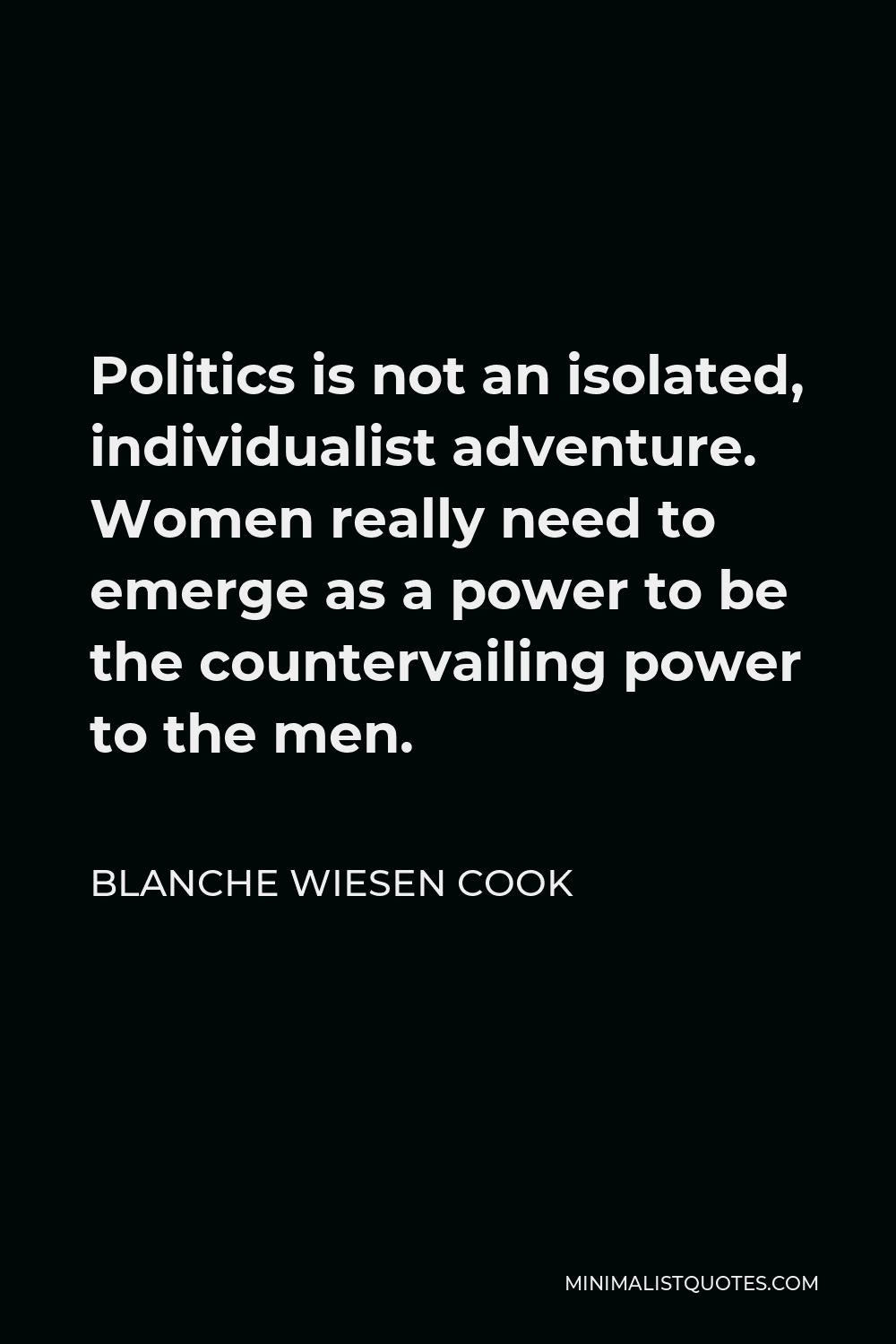
Politics is not an isolated, individualist adventure. Women really need to emerge as a power to be the countervailing power to the men.
BLANCHE WIESEN COOK -





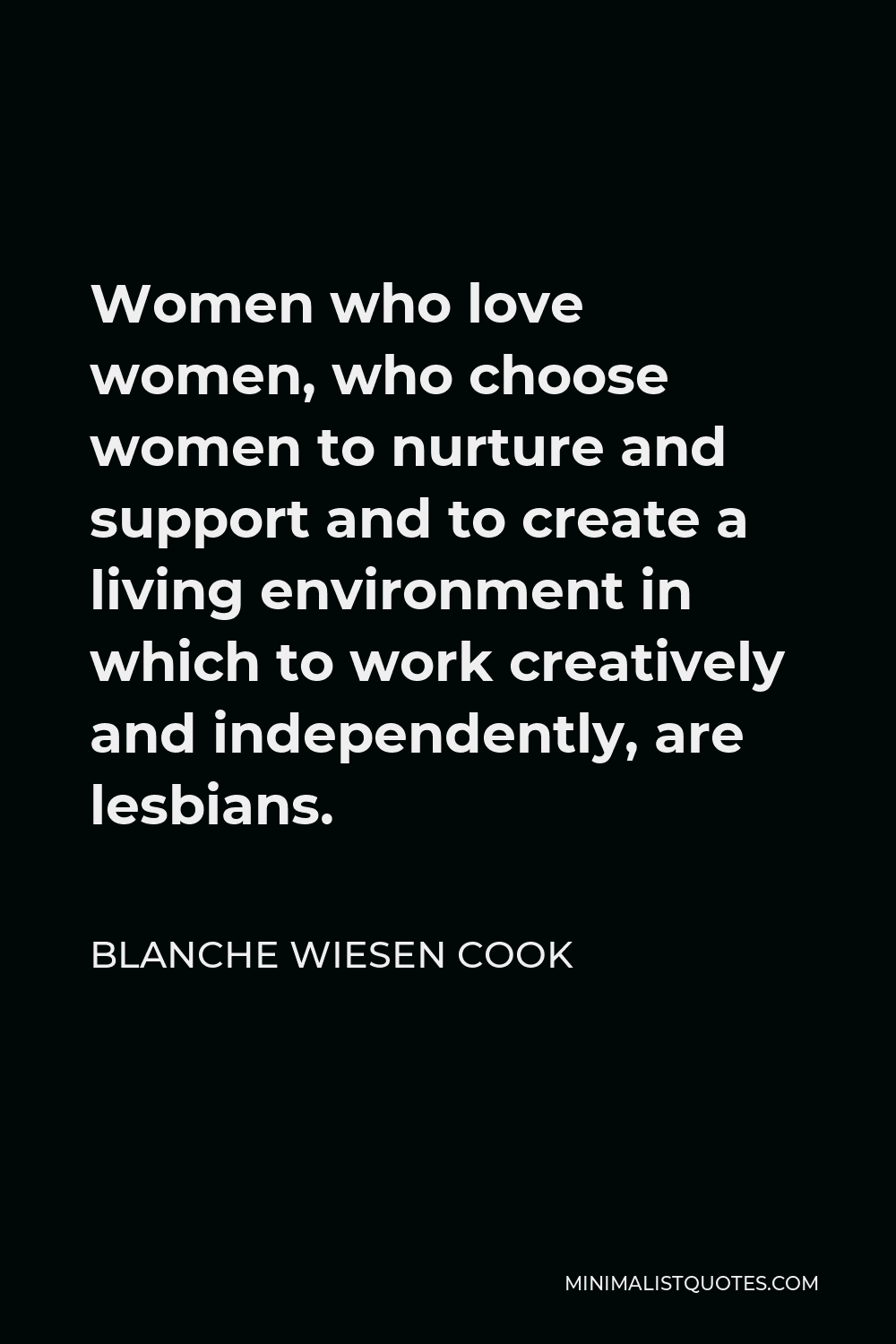
Women who love women, who choose women to nurture and support and to create a living environment in which to work creatively and independently, are lesbians.
BLANCHE WIESEN COOK -





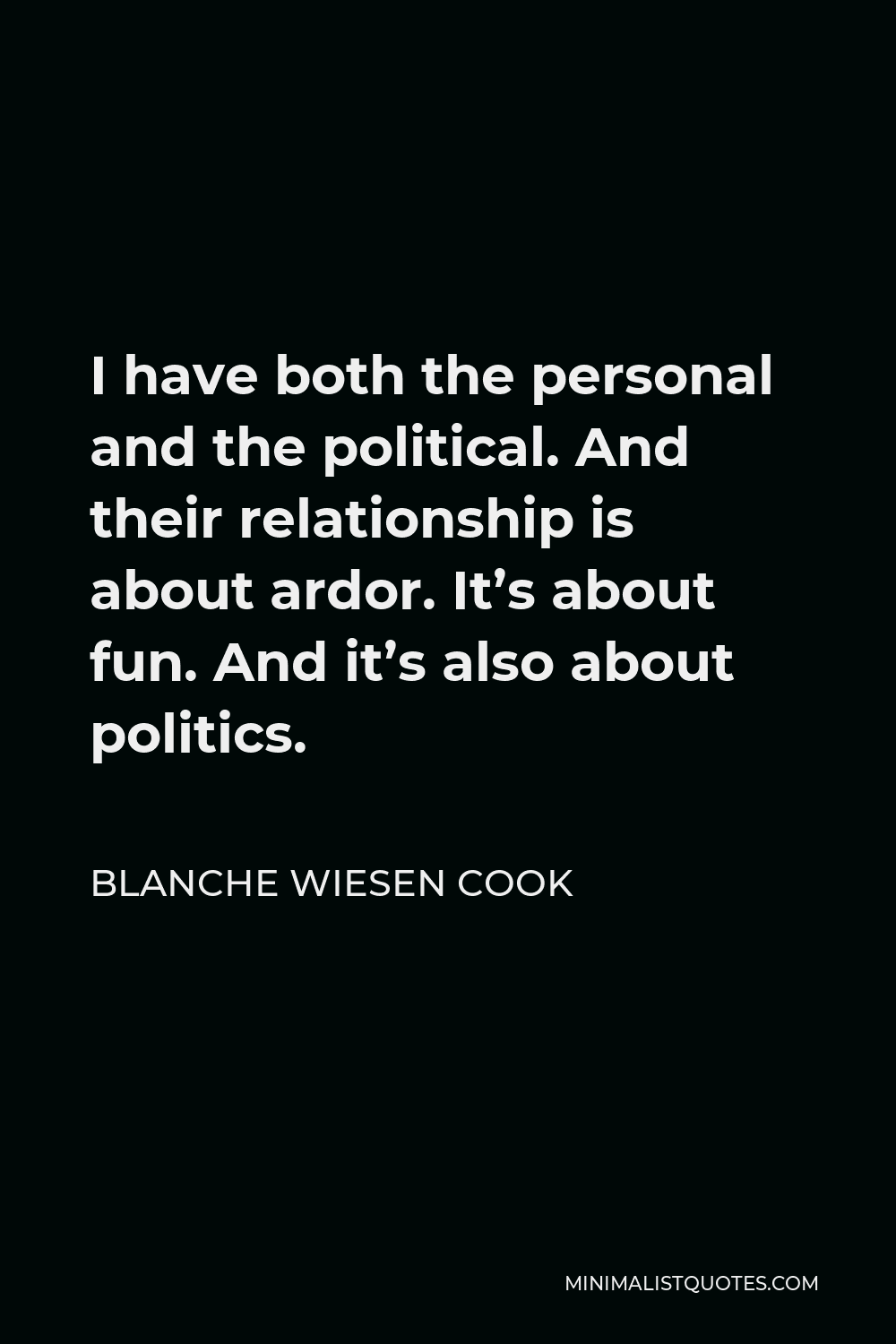
I have both the personal and the political. And their relationship is about ardor. It’s about fun. And it’s also about politics.
BLANCHE WIESEN COOK -





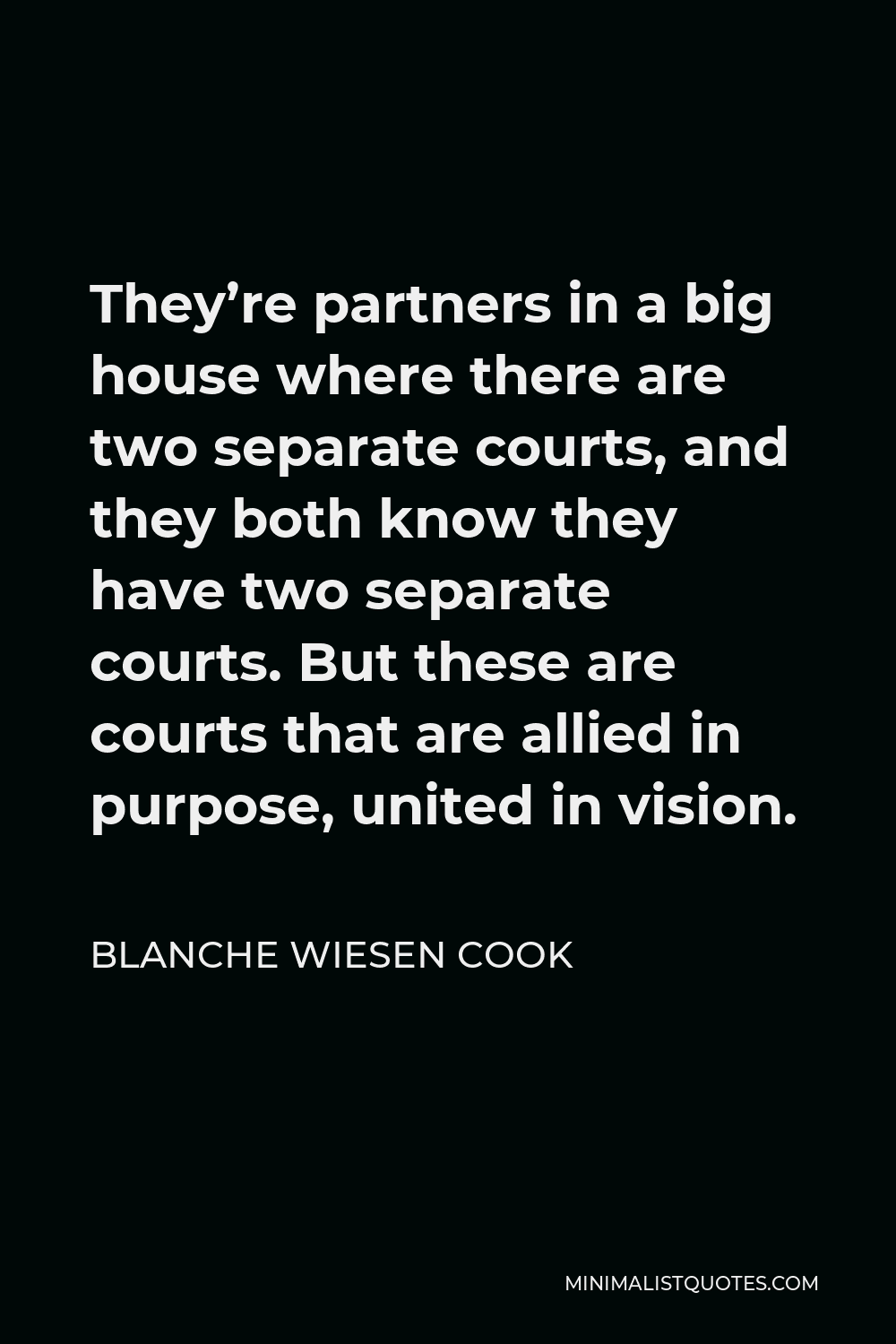
They’re partners in a big house where there are two separate courts, and they both know they have two separate courts. But these are courts that are allied in purpose, united in vision.
BLANCHE WIESEN COOK -





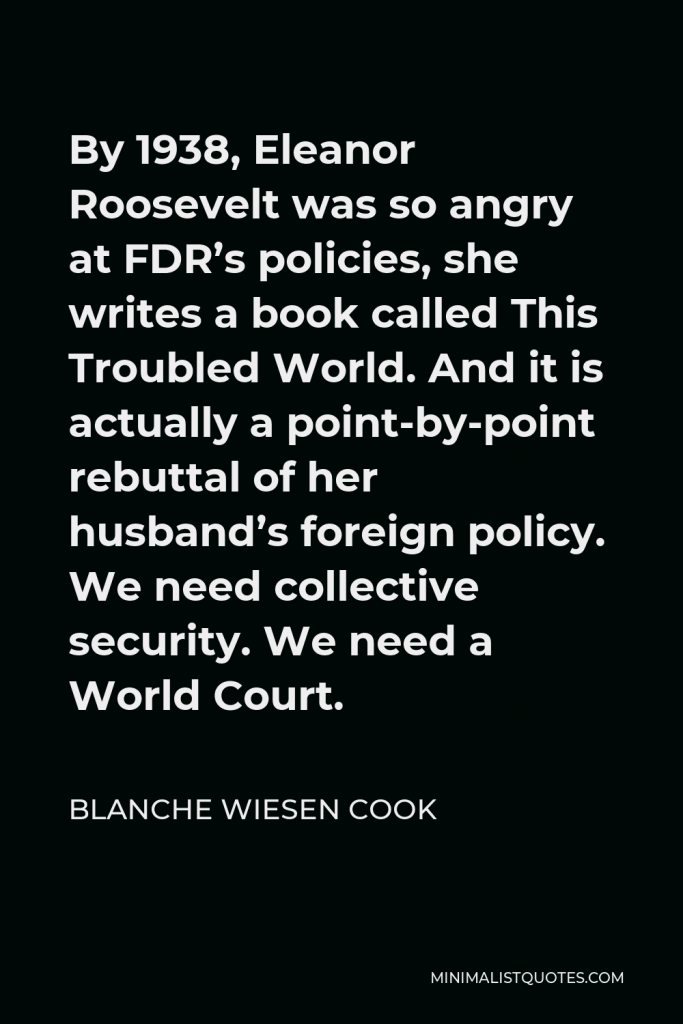

By 1938, Eleanor Roosevelt was so angry at FDR’s policies, she writes a book called This Troubled World. And it is actually a point-by-point rebuttal of her husband’s foreign policy. We need collective security. We need a World Court.
BLANCHE WIESEN COOK -





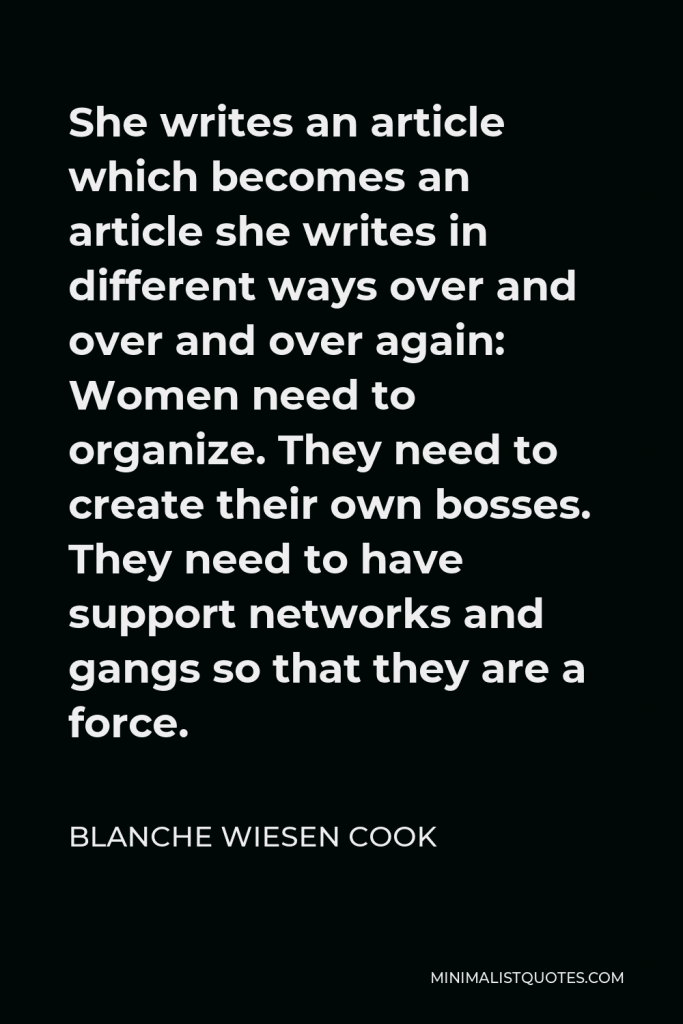

She writes an article which becomes an article she writes in different ways over and over and over again: Women need to organize. They need to create their own bosses. They need to have support networks and gangs so that they are a force.
BLANCHE WIESEN COOK -






She writes that the happiest day, the happiest single day of her life was the day that she made the first team at field hockey. And I have to say, as a biographer, that’s the most important fact.
BLANCHE WIESEN COOK -





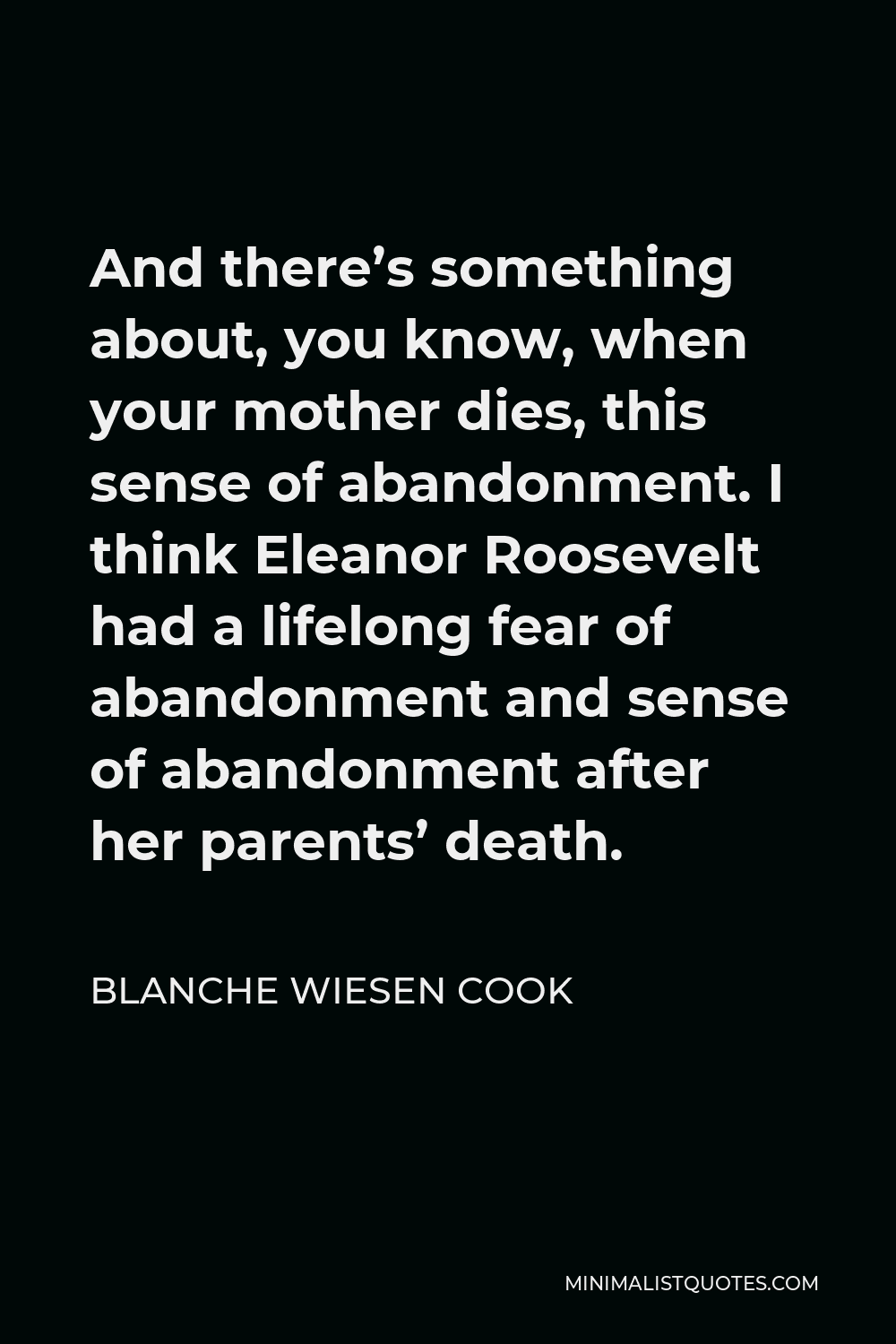
And there’s something about, you know, when your mother dies, this sense of abandonment. I think Eleanor Roosevelt had a lifelong fear of abandonment and sense of abandonment after her parents’ death.
BLANCHE WIESEN COOK
